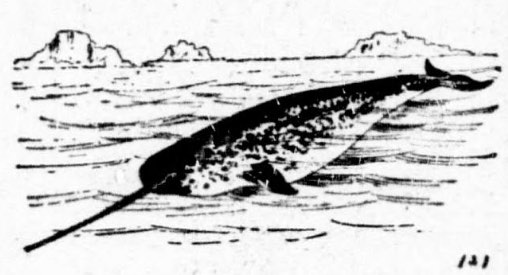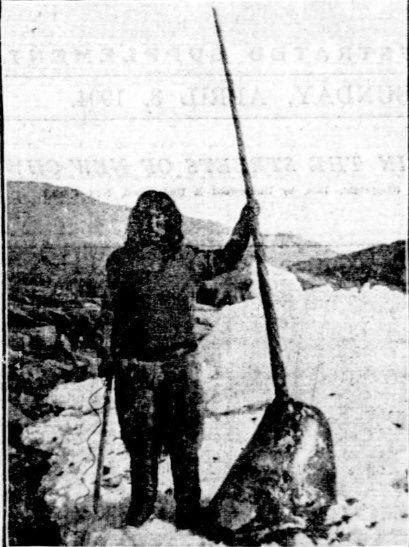
The narwhal is a tusked porpoise that lives in the waters of the Arctic. In the early 1900s, the narwhal was hunted almost mercilessly. Today, however, indigenous people responsibly hunt the narwhal for food.

Good Meat
In a newspaper article published in 1909, narwhals supplied hunters with good meat. Also called the sea unicorn, narwhals were hunted because their meat dried easily. It was considered a prized appetizer or lunch, and when available it was taken on short journeys as a trail snack.

Skin
The skin of the narwhal was a delicacy. It was cut into squares and cooked like scallops.
Blubber
Not surprisingly, narwhal blubber was a prized oil for lamps. The blubber gave “a long, hot flame to the lamp, with no smoke to spot the igloo finery.” [1]

Poison Antidote
The narwhal’s tusk, like the unicorn’s horn, was believed to have had magical powers. First and foremost, it was believed to be an intimate to poison. In an article from 1898, it states that the tusk was “an infallible antidote to all poisonous substances; [people] were persuaded that it counteracted all the hurtful properties of venomous substances. Charles IX, dreading least he should be poisoned, was very careful to put into his cup of wine a piece of the sea unicorn’s tooth.”

Tusks
Icelanders hunted the narwhal for its many uses. Incidentally, the arrows they used to hunt the narwhals were made from the narwhal’s tusk.

Inuit Mythology
It was reported in 1904 that the narwhals played a part in Inuit mythology:
“In times of famine and great scarcity of the narwhals it is thought that the shame who practice the working of charms and sorcery can procure food by causing the narwhals to appear from the bottom of the sea. The narwhals are said to be controlled by an old woman goddess who resides far in the depths. The shaman, by the aid of his supposed supernatural powers, can descend below to the abode of this deity, and, by combing and braiding her tangled hair, can cause her to release the narwhals, when they rise to the surface in great numbers.” [2]

